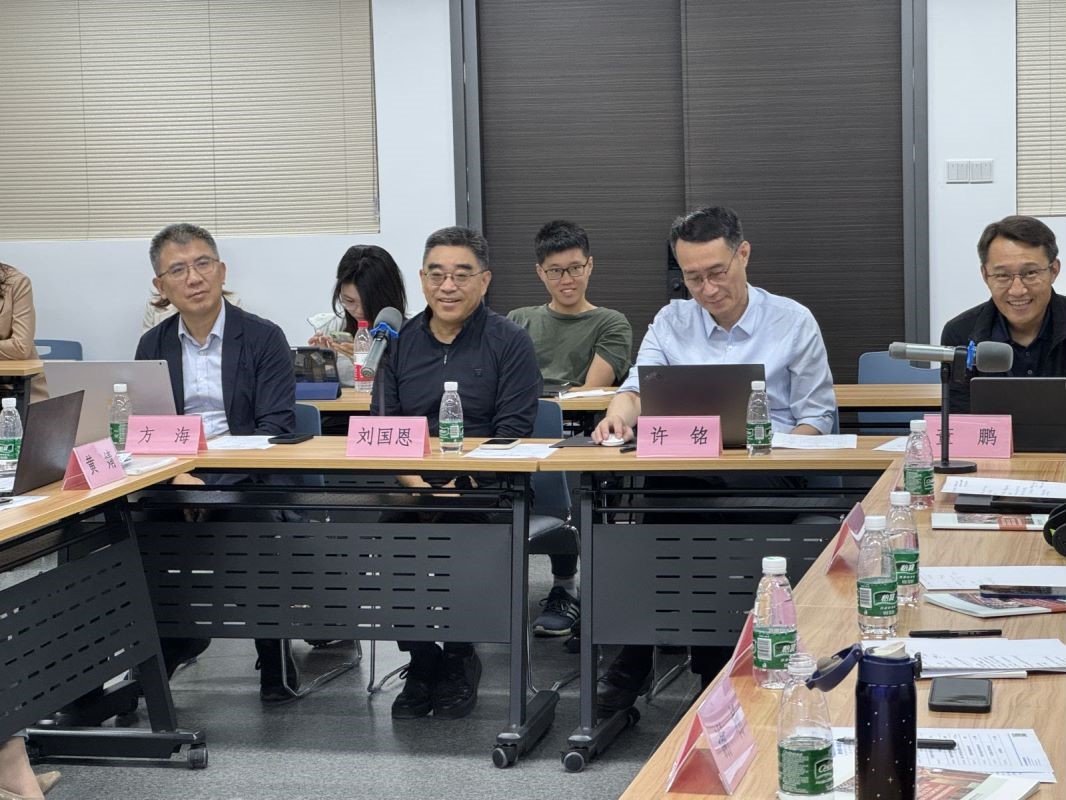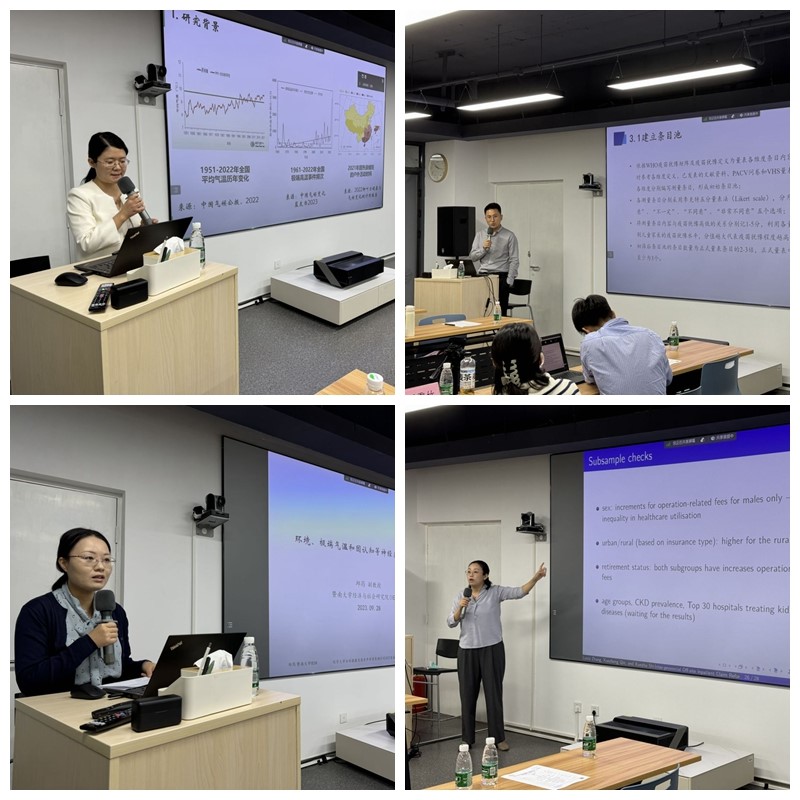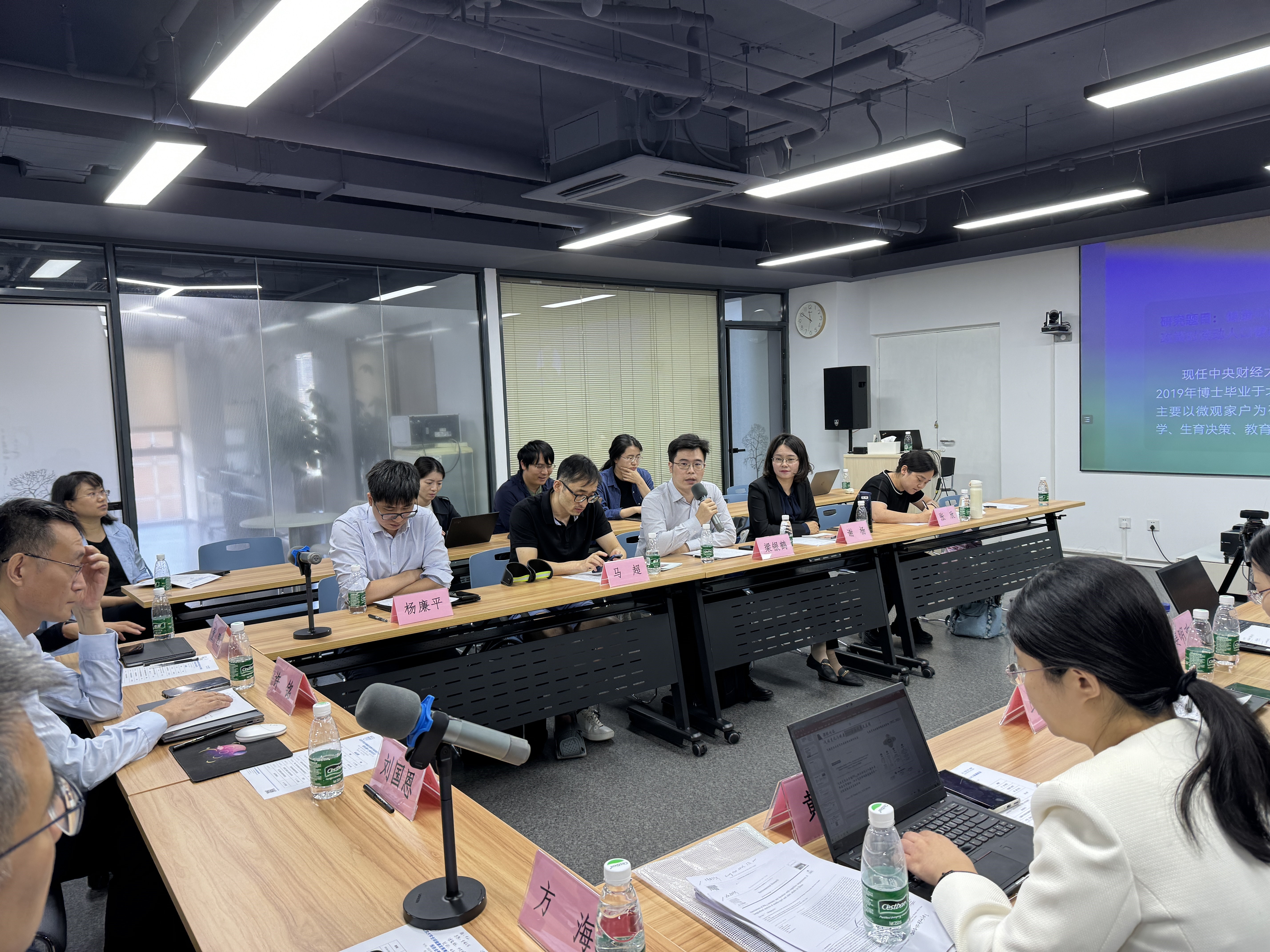The "Peking University Global Health Development Young Scholars Award Program" 2022 Closing Ceremony and 2023 Session Launching Ceremony were successfully held at the office of Peking University Science Park on September 28, 2023. The conference was hosted by the Peking University Institute for Global Health and Development (PKU-IGHD), and attended by 10 young scholars from domestic and foreign universities, selected from the first and second sessions, as well as several faculty members and students from PKU-IGHD.
Professor Fang Hai, a professor at the Peking University China Center for Health Development and a dual-hired professor at PKU-IGHD, chaired the meeting. Professor Liu Guoen, director of PKU-IGHD, professor at PKU School of National Development, and member of the Chinese Academy of Medical Sciences, emphasized in his speech that global health development is an emerging interdisciplinary field that combines global health with economic development. The establishment of this program by PKU-IGHD aims to place major themes of global health research within the framework of human development. The diverse disciplinary backgrounds of the selected scholars fully reflect the interdisciplinary nature of the field. Professor Liu expressed high hopes for the research achievements of the first batch of selected scholars, encouraging young scholars to make more contributions and go further on the path of global health development.

Representing the donating institution of the award program, Dr. Dong Peng from Pfizer China expressed in his speech that he was very pleased to see the scholars’ high-quality research. In the past, cooperation between enterprises and academic institutions has often been based on specific product or policy directions. Therefore, collaboration with universities in broader and higher-level research talent cultivation programs is worth developing and refining. The successful launch and continuous advancement of the PKU-IGHD Global Health Young Scholars Award Program are inspiring. He emphasized that while enterprises bring products and services into the domestic market, they also hope to improve research and technological innovation. Supporting talent cultivation and research expansion in global health is not only a necessary obligation of enterprises but also an optimization of their long-term development strategy.
The first cohort of young scholars then presented their concluding reports and actively interacted with the participating experts.

Associate Professor Chen Shanquan from the London School of Hygiene & Tropical Medicine presented a report titled "Population attributable fractions for modifiable risk factors for dementia in China, 2011-2018." Based on data from the China Health and Retirement Longitudinal Study (CHARLS), the report mainly explored the modifiable risk factors affecting dementia in the elderly in China. The results showed that from 2011 to 2018, approximately 50% to 55% of dementia in China was attributed to factors such as hypertension, obesity, excessive alcohol consumption, education level, and air pollution. Moreover, there were significant differences in the contribution rates of these factors among genders, income levels, and urban-rural areas.
Peking University Associate Researcher Huang Jing presented a report titled "The Impact of Climate Change on Cognitive Function of Middle-aged and Elderly Population under Double Carbon Background." Based on CHARLS data, the report explored the effects of climate change on the cognitive function of middle-aged and elderly populations. The conclusion indicated that extremely high temperatures adversely affect the cognitive function of middle-aged and elderly populations, with lower-educated individuals and middle-aged and elderly populations in regions with lower socioeconomic levels being more vulnerable to the effects of temperature rise. Without carbon emission reduction strategies, future temperature increases will have a more pronounced impact on the cognitive function of middle-aged and elderly populations.
Associate Professor Jiang Minghuan from Xian Jiaotong University presented a report titled "Development and Empirical Evaluation of the Scale of Vaccine Hesitancy among Parents of Children." This study focused on vaccine hesitancy which the World Health Organization advocates for countries to address. The report developed a scale of vaccine hesitancy among parents based on the current status of childhood vaccination in China. The aim was to provide evaluation tools and evidence-based means to address vaccine hesitancy and improve childhood vaccination rates. Through multiple stages of research including scale development, scale validation, and empirical evaluation, the study established a scale of 4 dimensions and 17 measurement items. The research results have been documented in an article that has been accepted for publication.
Professor Qiu Yun from Jinan University presented a report titled "Environmental Factors, Extreme Temperatures, and Mortality from Cognitive and Neurological Diseases". The study found that extreme high temperatures (above 30 degrees Celsius) and extreme low temperatures (below 20 degrees Celsius) significantly increased the mortality rate from neurological diseases. The impact of extreme low temperatures was slightly higher than that of extreme high temperatures, and extreme weather had a greater impact on the elderly. Female mortality rates were more susceptible to the effects of extreme high temperatures. The research evaluated the causal relationship between temperature and mortality from neurological diseases from an economic perspective, providing additional insights into the impact of temperature on cognitive ability.
Assistant Professor Shi Xue Zhu from the University of International Business and Economics conducted research related to the reform of medical insurance reimbursement for medical treatment in China. Focusing on hospitalized patients with kidney diseases, the study found that since the implementation of the direct settlement system for medical treatment in some areas, there has been an increase in the utilization rate of health expenses and health resources. The cost structure of hospitalized patients has also improved. The policy has had no significant impact on health-related outcomes.
After the conclusion of the presentations by the first cohort of scholars, Professor Xu Ming, Director of the Department of Global Health at Peking University Medical School and Associate Dean of PKU-IGHD, announced the list of scholars selected for the second session of the Young Scholars Award Program. They were Associate Professor Ma Chao from the School of Economics and Management at Southeast University, Associate Professor Yang Lianping from the School of Public Health at Sun Yat-sen University, Associate Professor Zhang Xin from the School of Statistics at Beijing Normal University, Assistant Professor Liang Yinhe from the School of Economics at Central University of Finance and Economics, and Associate Professor Xie Yang from the School of Economics and Management at Beihang University. The selected scholars from the second session introduced their research and academic experiences, expressing their anticipation of achieving hopeful results in their research projects over the next year under the guidance of mentors at PKU-IGHD.

In his concluding remarks, Professor Xu stated that the Global Health Young Scholars Award Program aims to bring together the excellent resources of Peking University and the environmental, economic, and public health resources of universities nationwide. He hopes that, beyond focusing solely on Chinese research, the second cohort of scholars can further broaden their perspectives, increase attention to important issues in global health development, and achieve more fruitful research results. He emphasized the crucial importance of China's initiatives in advancing global health development, suggesting that the work in China could make greater contributions to chronic disease prevention and control and climate change, and better integrate the country’s developmental experiences with global health development issues. Finally, he expressed heartfelt gratitude to the sponsors, congratulated the achievements of the first cohort of young scholars, and looked forward to the second cohort reaching even greater heights.
(Interpreted by Waverly Shi)